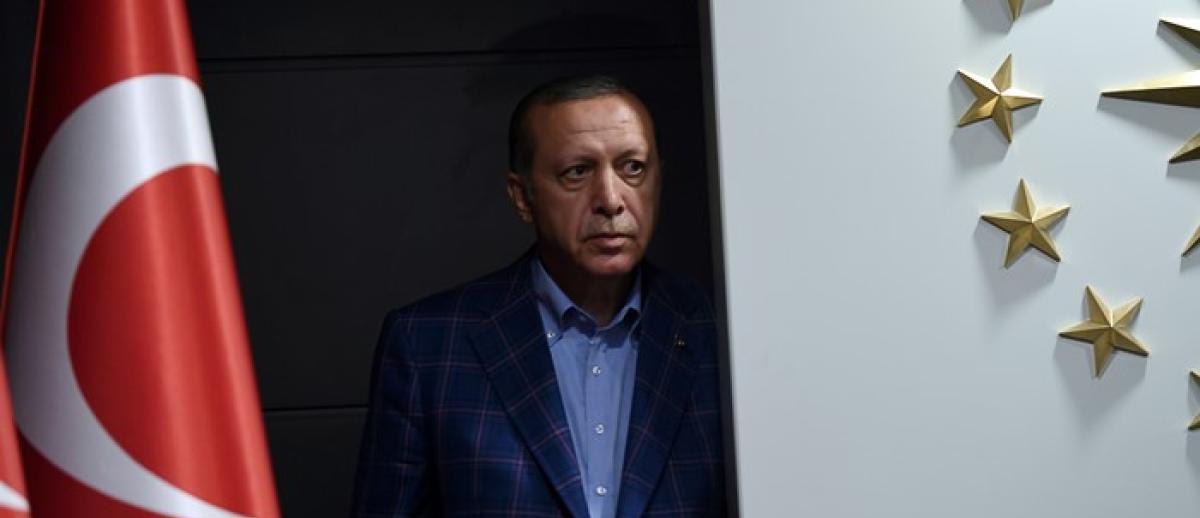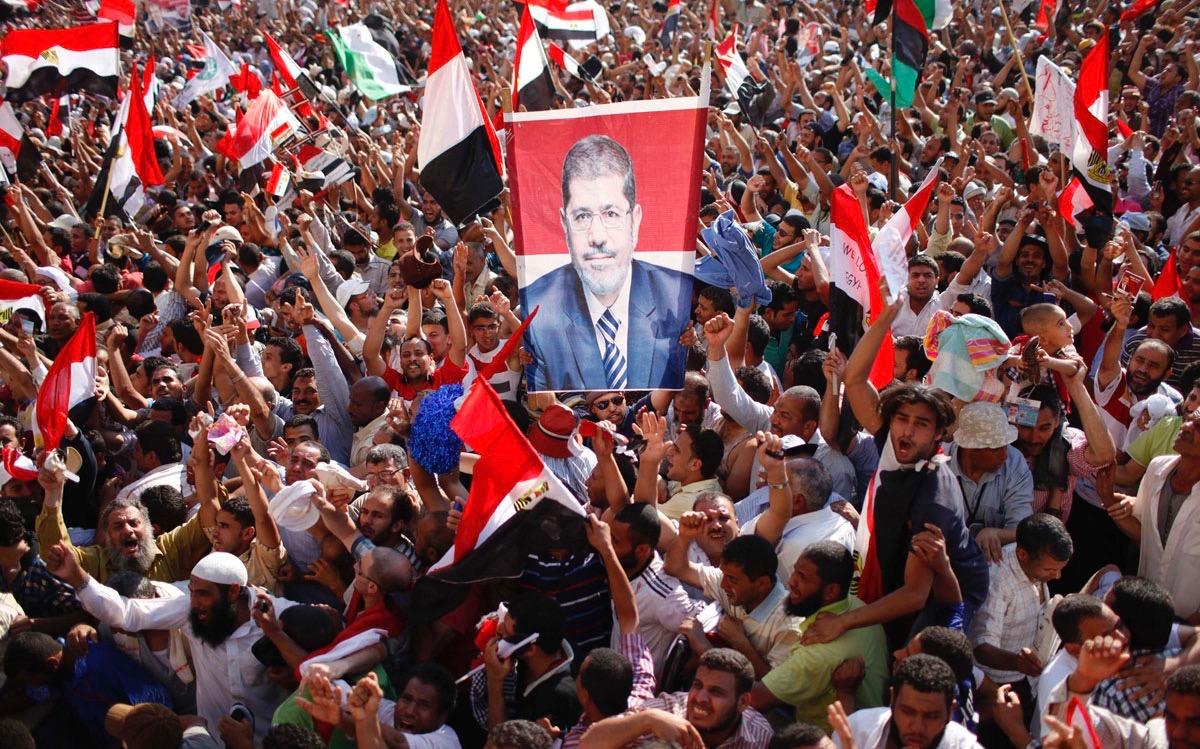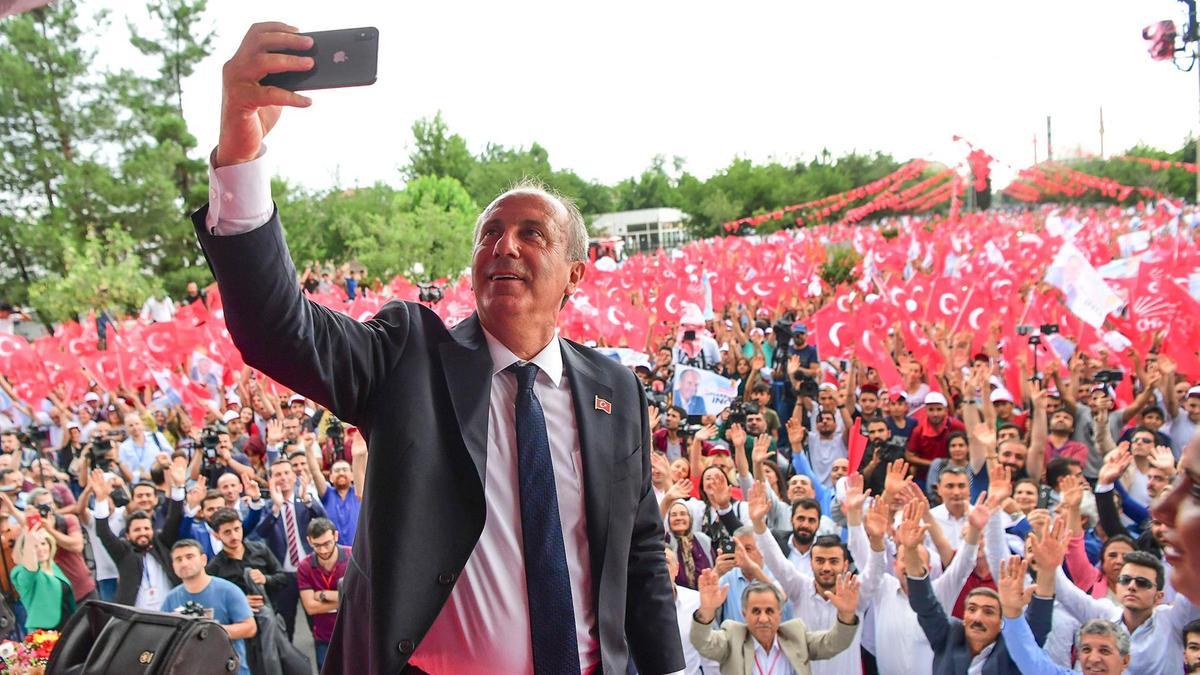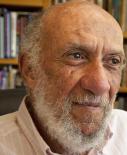A Reflection on the June 24th Turkish Elections
archive


Turkish president Recep Tayyip Erdoğan arrives to deliver a speech at Justice and Development Party (AKP) headquarters in Istanbul in 2017. Photo credit: AFP/Bulent Kilic
A Reflection on the June 24th Turkish Elections
In the days before the 2018 Turkish elections there were clashing fears and hopes mixed with predictions that mirrored these passions, and anticipated some kind of upset of the Erdoğan game plan for the future of the country. The long simmering intense hostility to Recep Tayyip Erdoğan seemed to have finally found its political voice in the person of a former high school physics teacher, Muharram Ince, the CHP candidate with his own gift for inspirational political oratory that created a feverish enthusiasm at his pre-election rallies, and there were reasons to believe and hope that Turkish citizenry was ready for a change after 16 years of AKP governance.
The Turkish economy was believed to be in terrible shape as signaled by the international fall of the lira, the pre-election spike in the cost of staple foods, high unemployment, and a dangerous shortfall in foreign capital needed to neutralize the effects of balance of payments deficits. Beyond this there seemed present a kind of political fatigue, a feeling even among former supporters that this controversial leader had held the reins of power far too long for the good of the country, that he badly damaged the international reputation of Turkey by over-reacting to the failed coup of 2016, that he was weakening the secular ethos of the Ataturk legacy while shifting power, influence, and wealth to emergent sympathetic business elites, and that his military campaigns in Syria and Iraq were responsible for a dangerous nationalist fervor and a rejection of legitimate Kurdish grievances and aspirations, helping to fuel the massive refugee influx of recent years.1
I share the critical view that the Turkish government used the pretext of security to go after a variety of enemies that had little or nothing to do with the coup attempt, but I also recognize that almost any government would respond strongly to such a challenge. The refusal of international observers to contextualize the security challenges facing post-coup Turkey is an unmistakable display of an intense anti-Erdoğan bias that distorts perceptions and exaggerates criticisms.
It is in this highly charged atmosphere that the people I know best in Turkey by and large approached the June elections. There was a mood among the opponents of Erdoğan that his game was about to come to a welcome end, a sentiment shared by some high profile advisors and officials who had earlier worked on behalf of the AKP and its charismatic leader. This mood translated into a consensus prediction that the alliance of parties would get enough votes to prevent Erdoğan from receiving the 50%+ votes he needed to receive a mandate to become the president charged with managing the constitutional shift from a parliamentary system to what Erdoğan refers to as ‘an executive presidency.’ The expectation was that if Erdoğan didn’t win a majority in the first round, then he would be a fairly easy target in the runoff election since the opposition parties had agreed in advance to unite if such an eventuality came to pass. If this had happened, the parliamentary system would have been retained, and the executive presidency would have never come into being. The second fervent hope of the opposition was that the AKP would go down with their master, undoubtedly winning more seats than any other party, but still falling short of what would be needed to exercise majority control in the Turkish Parliament.

Supporters of Muslim Brotherhood candidate Mohamed Morsi in Tahrir Square, 2012. Photo credit: Reuters
The question the morning after the election was, what went wrong with these expectations? My first attempt at an answer harkens back to my presence in Cairo shortly after the fall of Mubarak in early 2011 when I had contact with a wide range of influential persons almost all of whom shared a hope for an inclusive form of democracy that would involve the Muslim Brotherhood as a minority presence in the Egyptian Parliament. Egypt had a runoff election arrangement similar to the one in Turkey, and the Muslim Brotherhood shocked the secular elites by achieving a political majority in the 2012 elections, initiating a sequence of events that pushed the country back to authoritarianism in a harsher form than what was experienced for 30 years under Mubarak. It confirmed for me the political myopia that often misleads modernized elites living in a dominant city in their country to believe that the future will unfold as they and their friends hope. I have dubbed this tendency ‘the Cairo Syndrome,’ and although less pronounced in these 2018 Turkish elections than it had been in Egypt, it certainly played its part in aligning advance expectations with wishes. The same phenomenon was operative in the U.S. just prior to the 2016 presidential elections when Trump’s victory surprised the country and brought shame to the national pundits.
The more illuminating concern is why with all that seemed to be working against Erdoğan he not only won but also ran more than 12 percentage points ahead of the AKP, suggesting the persistence of his personal popularity as compared with the weakening of support for his political party.2 Despite the inspirational nationalism and modernizing agenda of Ataturk, and his still robust legacy, Turkey was and remains very rooted in Islamic cultural and religious traditions in ways that give Erdoğan an authentic aura that transcends the whys and wherefores of political debate.
[T]here were reasons to believe and hope that Turkish citizenry was ready for a change after 16 years of AKP governance.
And then there is the phenomenon of national pride, just as Erdoğan stood up so triumphantly against those who staged the coup, he also stood tall against the world, including the United States and Europe. He has brought much progress in the social and economic spheres to the poor and materially disadvantaged, and helped give Turkey a strong regional and global role that it had never achieved previously in the republican era when its leaders seemed content with their role as a passive junior partner of the West. In a turbulent region and world, Turkey has made some substantial contributions that are rarely mentioned: the civilianization of governance, overcoming a deeply embedded military tutelage emanating from the Ataturk approach; an extraordinary refugee policy that has settled four million Syrians and Iraqis fleeing their countries (far more than all of Europe combined); humanitarian missions to Somalia, Rohingya, and elsewhere that have brought needed world attention to distressed and victimized people otherwise neglected; a high ranking among countries with respect to per capita expenditures for humanitarian assistance; and a serious challenge to the geopolitical manipulation of the UN under the slogan ‘the world is greater than five.’
On balance are the election results good for Turkey? This is not an easy question to answer, and a meaningful appraisal must await indications of how the newly constituted presidential system operates and whether the economic challenges can be effectively addressed. It is not encouraging that governing and legislating seem dependent on agreement with the MHP, an ultra-nationalist political formation that is militaristic and hostile to Kurdish aspirations. Also, Turkey faces an array of difficult internal and international problems which especially include serious inflation, a weakened international currency, and dependency on agricultural imports. These problems seem to have no short-term fix, and would likely magnify societal tensions if an IMF or EU type of austerity regime were to be instituted. Alternative electoral outcomes would not have generated quick solutions to these problems.3
What Turkey does have now, which it has badly needed during the prior AKP years, is Muharram Ince, a forceful leader of the CHP opposition who by his showing in the election, running seven points ahead of his party, can create an atmosphere more conducive to the sort of political debate and policy friction that makes constitutional democracy perform at its best. Ince also relies on populist and colorful rhetorical language that matches Erdoğan’s own crowd mobilizing style that may have the effect of creating more democratically oriented negotiations and collaborative solutions within government, especially with respect to the Parliament’s role going forward.
In this world of ‘elected dictators’ let us not demean the impressive democratic achievement of these Turkish elections that belie the irresponsible mutterings of those who contend that the outcome was rigged. Surely, a political personality as accomplished as Erdoğan, if exercising the sort of dictatorial powers that his detractors claim, could have done a better job if these accusations were grounded in fact—rigged elections can be usually identified by huge margins of victory, by excluding unwanted parties from qualifying for participation, and by giving the leader the kind of control in the legislative branch that would smooth the work of rulership. Closely contested elections of this sort only occur in societies where procedural democracy associated with the primacy of elections is allowed to function even if flawed in various ways (often by giving wealthy donors disproportionate and anti-democratic influence). Of course, Erdoğan had the benefits of long-term incumbency, as well as the fruits of his strenuous efforts to tame hostile media, and this unquestionably tilts the process to an uncertain degree but is a general feature of party-driven politics and is rarely allowed by itself to cast doubt on the legitimacy of the electoral results.

Muharrem Ince, presidential candidate of Turkey's main opposition Republican People's Party, at an election rally in Diyarbakir, Turkey in June 2018. Photo Image: CHP Press Service/AP
Even if these flaws are corrected, or at least mitigated, procedural democracy is not enough, and one hopes that Erdoğan will use his newly acquired powers over judicial and other governmental appointments wisely. More deeply, we can hope that Erdoğan has learned from the Gezi Park experience that a majoritarian approach to governance breeds intense internal conflict and embittered forms of polarization that interfere with the pursuit of his signature goals of economic growth, enhanced regional and international stature, and a cultural appreciation of Muslim values and traditions.
At this moment, in the immediate afterglow of electoral victory, Erdoğan does seem to be adopting a more inclusive language, speaking of his commitment to the unity of the nation, a theme echoed in the gracious comments by Ince who unconditionally accepted the validity of the electoral results putting an end to mutterings challenging the results, and pleaded only that the elected leadership now take account of the whole Turkish population of 80 million in the conduct of governance, and not only of those supporting the Erdoğan approach. If Erdoğan wants to start this new phase of Turkish constitutionalism on a positive note he could not do better than extending an olive branch to imprisoned academics, journalists, and human rights activists through the exercise of his power to pardon, especially to complement his declaration that the state of emergency will not be further renewed, a particularly encouraging move given that it is resisted by the AKP alliance partner, MHP.
1. Another criticism was that Erdoğan was inflicting an expensive gigantism on the country in the form of a presidential palace, the world’s largest airport, a proposed Istanbul Canal, giant mosques, a third bridge over the Bosphorus, and generalized urban blight.
2. In fact, Erdoğan did not lose any individual support if this election is compared to the prior 12 elections where he had also always prevailed to varying degrees. Part of the explanation is the depth and passion of his base among the poor and pious, and those resident in the non-Kurdish parts of Eastern Turkey or in the interior of the country. The only places where Erdoğan and the AKP finished second was along the Western coastal fringe of the country, with its lead city of Izmir.
2. The anti-Turkish international campaign might have celebrated and solidified results more to its liking by pouring capital into the country to meet the deficit, to build confidence in a new compliant political order, and to fight inflation and capital flight, which might have quickly produced a stronger lira.



